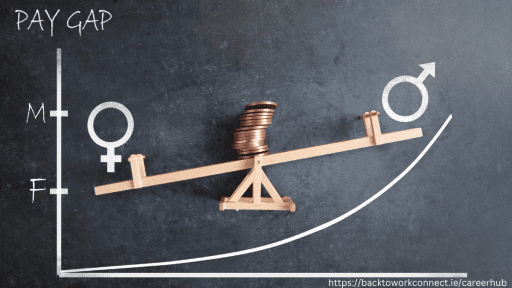Returners, or individuals re-entering the workforce after a career break, often take a more cautious and calculated approach to job searching compared to those who have been continuously employed. There are several reasons why returners might look at but not apply for as many roles as an average job seeker:
Lack of Confidence
Skills Gap: After a career break, returners may feel their skills are outdated or insufficient for many roles. Even if they are qualified, they might perceive themselves as less competitive compared to others who have been actively working.
Imposter Syndrome: They may doubt their abilities or feel like they don’t belong in certain roles, fearing they might not perform as well as others.
Fear of Rejection
Returners often have a heightened fear of rejection because of the perceived gap in their resume. This fear can make them hesitate to apply, especially for roles that seem like a “stretch” or that they feel they might not be fully qualified for.
They might worry that employers will view their career break negatively, leading to fewer applications despite actively searching for suitable opportunities.
Uncertainty About Returning to Work
Transitioning back into the workforce can feel like a big change. Returners may feel uncertain about the right type of role to pursue, especially if they are adjusting to new industry trends, technologies, or work cultures.
They may be unsure of whether a full-time role, a part-time position, or a flexible working arrangement would be best suited to their new circumstances (e.g., balancing family responsibilities, re-integrating into the workplace, or adjusting to different work-life dynamics).
Role Fit and Flexibility Concerns
Limited by Flexibility: Returners often seek more flexible roles (e.g., remote work, part-time, job shares), which can significantly reduce the number of positions that are a good fit. Many available roles may not offer the flexibility they need, causing them to pass on opportunities.
Role Relevance: After being away for some time, returners may focus only on positions that specifically match their previous experience or interests. This can limit their willingness to apply to jobs outside of their former career path or comfort zone, which might prevent them from applying for roles that could be a good fit but require some new learning.
Job Market Realities
High Competition: Returners may realise that many jobs in competitive fields are heavily saturated, making it less likely for them to land an interview. This could deter them from applying to positions that seem competitive or hard to break into.
Unrealistic Expectations: Some roles may require experience in the last few years, or for candidates to be up-to-date with specific technologies or certifications that returners might not have, limiting their willingness to apply for jobs that don’t explicitly match their current qualifications.
Feeling of Being Overqualified or Underqualified
Overqualified: Returners might feel that they are applying for roles they are “overqualified” for, which might lead to concerns about being stuck in a job that does not fully utilise their potential or might make them feel underappreciated.
Underqualified: They might also feel underqualified for positions that are slightly outside their previous expertise due to lack of recent experience or new skills required.
Time Constraints
Balancing Other Priorities: Many returners are juggling family, caregiving, or other personal responsibilities, which can limit the time and energy they have to dedicate to a job search. They might look at job postings without applying because they are not sure they can meet the job’s demands or schedule.
Recalibrating Expectations: Because returners are navigating a complex transition, they may also be more thoughtful about the roles they apply to, ensuring that they align with both their professional goals and personal life circumstances. This process can make them more selective in choosing roles to apply for.
Industry or Role Changes
Evolving Industries: In fast-changing sectors, such as tech or marketing, returners may feel that they need to re-learn or upskill to meet the current demands of the market. This can make them hesitant to apply for positions that require knowledge or experience they haven’t updated during their career break.
Shifts in Job Requirements: Even if the returner has experience in a specific field, changes in the job market may mean they need to acquire new skills or certifications. This can create hesitation to apply for positions that are perceived as too advanced or different from their prior role.
Negative Experiences or Bias
Bias in Hiring: Returners might have faced discrimination in the hiring process due to their career break, leading them to feel that employers are less likely to hire someone who has been out of the workforce for a period of time. This can result in a lack of motivation to apply or continued skepticism about the possibility of success.
Past Rejection: Previous rejections after returning to the workforce may discourage returners from applying for roles again, leading them to give up on opportunities before applying.
In summary, while returners are often highly skilled and experienced professionals, various emotional, practical, and market-based factors contribute to their cautious approach to job applications. They are often more selective, thinking carefully about the right role and considering the potential risks and rewards before applying.
For more information and supports on creating a Returner Friendly recruitment process reach out to our team at info@backtoworkconnect.ie
Keep up to date with the latest Returner Friendly employers, upskilling & retraining opportunities by joining our platform HERE
Sign up to our newsletter & job alert today and never miss the ideal opportunity again ! Sign up HERE





